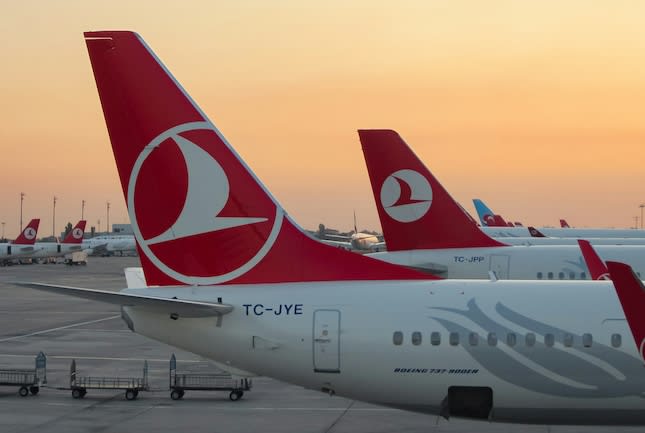How to Stop Airline Distribution Disruptions From Disrupting Your Corporate Travel Program

The landscape keeps changing for how airlines are handling the distribution of their content.
The most recent news: Frontier Airlines terminated its participation in Sabre as of September 30. Similarly, last month, Turkish Airlines, one of the world’s largest carriers, also ended its participation in Sabre — a change that took effect on September 1, after talks broke down on a distribution agreement. Now, for any ticket issuing or reissuing, modifications, or cancelations on either Frontier or Turkish, TMCs have to go directly to the airline or via another GDS.
To say that both decisions were last-minute is putting it mildly: The news broke only a couple of weeks before each termination. And the shifts represent just the latest in an ongoing series of changes in airline content distribution.
What Happens Now?
With these changes, many businesses will get stuck dealing with the fallout. That’s because most TMCs typically pick a single GDS, and Sabre has a large share of the TMC market in the U.S. The effect may be felt less in Europe, where Amadeus holds a significant market share, but any programs based on a single-GDS setup with Sabre will now likely have to scramble.
Why Navan Customers Can Rest Easy
Among other channels, Navan sources content via both Sabre and Amadeus, so Turkish Airlines and Frontier remain available on Navan, and users will not see any significant impacts to their travel programs. Thanks to a multi-source strategy and deep expertise working with a wide range of partners including GDSs, aggregators, and direct connections, Navan can react quickly to changes in airline distribution and source content through a partner’s preferred channel.
3 Reasons Why Multi-Provider Sourcing Is Key — Especially Now
We’ve seen it happen time and again. Here are two examples:
- Last year, American Airlines pulled 40% of its content from legacy channels. Navan pivoted via a direct connection so we could bring our customers undisrupted access to the airline’s full offering. But not every company was so lucky. Although the AA content has now made its way back into the GDS, most programs saw large travel cost increases during the intervening months, due to their TMC’s inability to pivot.
- Late last year, a dispute between Ryanair and Travelfusion led to industry-wide content availability outages. But Navan was able to react quickly to this change. We have since switched away from Travelfusion in order to source and book Ryanair content via Sabre, so customers could still access Europe’s largest airline.
For flights, Navan sources via GDSs, aggregators, and direct connections. If the same fare is available across multiple channels, we will prioritize the cheapest one in order to avoid overspending. (Download the Navan NDC Savings Index to see what our NDC-enabled connections could do for company savings and employee satisfaction.)
It’s the same for hotels. Thanks to OTAs and two GDSs, Navan offers access to business and consumer rates at the same time for a given room, so travelers can book whichever is cheapest.
Content at Navan
“At the core of Navan’s mission is the belief that having access to the right content is crucial for creating those in-person connections people value, whether that involves transit like a train or flight, or securing a rental car or hotel at the destination.”
—Dane Molter, VP of Core Business Travel, Navan
Understanding Navan’s Unique Approach to Content
Let’s face it: The success of a travel program hinges on exhaustive content. Why? Without it, there’s no traveler satisfaction, no adoption, no visibility — and no cost savings. That’s why Navan’s industry-leading approach to travel inventory combines multiple feeds of content to provide the best experience for travelers.
Here are three ways Navan’s approach to content is unique:
- Multi-provider by default. Navan connects to as many providers as possible (multiple GDSs, aggregators, and direct connections) to guarantee suitable content at the best possible price — without compromising on user experience.
- Optimized for self-service. Navan optimizes content for self-service as much as possible, so exchanges, cancellations, and more can be handled online, without needing to go via agents.
- Globally available content and innovation. Innovation in silos only serves marketing, not customers. Content should be sourced and optimized to be accessible from any location or point of sale. Whether it’s rail carriers, NDC, or even low-cost carriers, all travelers should be able to book the content they need, regardless of their location.
Is Your Company Prepared?
It’s unclear if the Turkish Airlines or Frontier situations are momentary or long-term disruptions. But they aren’t the first, and they won’t be the last: Disruptions of this kind are becoming common occurrences. And it’s up to TMCs to work around them.
Navan has always prioritized being able to do just that. We were ready for the changes to American Airlines, Ryanair, Turkish Airlines, and Frontier. And as the business travel world evolves, we’ll be ready for the changes that lie ahead.
This content is for informational purposes only. It doesn't necessarily reflect the views of Navan and should not be construed as legal, tax, benefits, financial, accounting, or other advice. If you need specific advice for your business, please consult with an expert, as rules and regulations change regularly.
More content you might like
Take Travel and Expense Further with Navan
Move faster, stay compliant, and save smarter.
